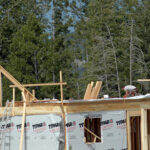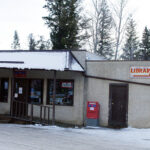Home »

Supporting rights to access federally managed public lands
Letter to the Editor
While serving as your Member of Parliament, and in the role as a member of the Canadian Parliamentary Outdoor Caucus, I have been proud to stand up for our hunters, anglers, sport shooters, outfitters and the outdoor community.
Closures to our backcountry are being seriously considered more and more. The Liberals’ international commitment to ‘protecting’ 30% of Canada’s oceans and lands by 2030 – also known as 30 by 30 – is having significant impacts on British Columbia’s outdoor community and access to our public lands and waters.
My colleague Bob Zimmer, Conservative candidate for Prince George-Peace River-Northern Rockies, recently pointed out, “the ever-increasing blind percentage seems to never be enough for powerful ENGOs and I have heard many speak of ‘protecting’ 50% by 2050! Where do you think they are going to get all of that land and water from? From rural Canadians, that’s where. From your prime hunting or public fishing spots to beloved snowmobiling or hiking areas.”
He’s absolutely correct and we have witnessed this first-hand in Kootenay-Columbia. Early in my term I worked together with Kootenay East MLA Tom Shypitka to restore access to federally managed land just west of Cranbrook where access had been closed. The NDP will use any opportunity, including train crossings and bridge closures, to restrict access to public lands. In fact, the federal NDP candidate for Kootenay-Columbia has a lucrative contract from the federal government – Parks Canada specifically – to study the Flathead Valley. The question must be asked, does Wayne Stetski want to turn the Flathead Valley into a park, as part of the 50% by 2050, where access to the public would be restricted?
As we know, Kootenay-Columbia’s hunters, anglers, and outdoor enthusiasts are conservationists at heart who support protecting our lands and waters through science-based decisions, not blind, unwarranted shutdowns. They understand that sustainability and respect for the environment does not preclude the enjoyment of nature. I have always believed that we should be working with these experts, learning from their experience and expertise, and using this knowledge when it comes to making decisions about access to our public lands and waters.
Arbitrary closures to meet arbitrary goals won’t work. Not only do these closures punish those who care about conservation and who are at the forefront of grassroots conservation projects across the country, they also effectively shut down the livelihoods of many Canadians living in rural, remote and coastal communities.
Unfortunately, as we have seen with caribou recovery plans in our region, Justin Trudeau and his NDP friends continue to disregard the concerns of local leaders, businesses, residents, and local outdoor experts when it comes to access to our public lands and waters. I fear this will continue to have a devastating impact on our important way of life.
We need to find a way to support our outdoor community, while also balancing the sustainable use of natural resources, societal and economic needs, and environmental protections. It is why I will continue to speak out against the lack of genuine consultation surrounding caribou and other closures, as well as continue to push to ensure that these decisions are made based on science and sound advice from local experts.
My job as your representative and member of the Parliamentary Outdoor Caucus is to bring national attention to these issues and the negative impact these arbitrary decisions are having on everyday Canadians like you. I will continue to work hard, alongside colleagues like Bob Zimmer, to pressure ministers and the bureaucracy to make better decisions based on sound science and local expertise.
Rob Morrison,
Conservative Candidate for Kootenay-Columbia







